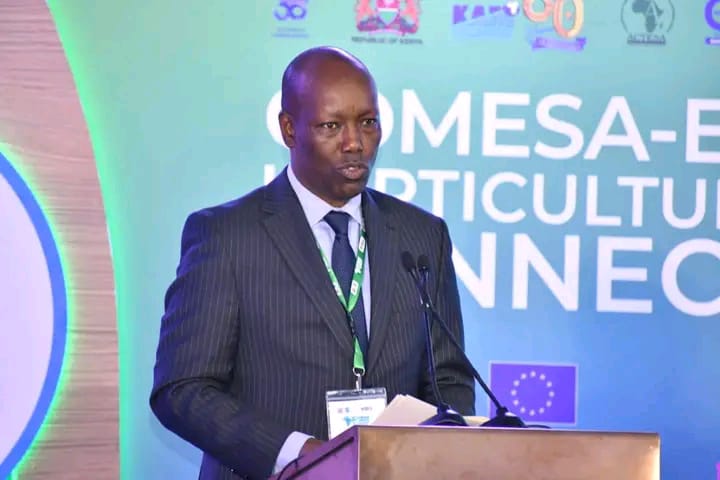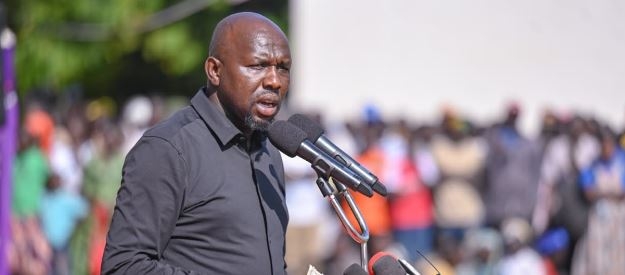

Cabinet Secretary for Investments, Trade and Industry Lee Kinyanjui has emphasised the strategic role horticulture plays in regional economies, contributing to job creation, export earnings, and food security.
Speaking during the inaugural COMESA–EU Horticulture Connect Seminar at the KICC, the CS joined other leaders in calling for stronger partnerships to unlock the full potential of Africa’s horticulture industry
“Horticulture generates employment for millions, empowers women and youth, and provides vital foreign exchange. Kenya alone contributes about 1.6 per cent of GDP from the sector, with over 70 per cent of cut flowers exported to the European Union,” he said.
The Cabinet Secretary urged COMESA member states to harness innovation, climate-smart production, and harmonised standards to strengthen regional and global market linkages.
“Challenges such as climate change and post-harvest losses are real, but they present opportunities for green growth and inclusive partnerships. The private sector must seize this moment through investment and value addition,” she added.
COMESA Secretary General Chileshe Mpundu Kapwepwe, hailed the collaboration between COMESA and the European Union, noting that the horticulture sector alone contributes over USD 3.3 billion (Sh420 billion) annually in exports to the EU.
She highlighted the success of the EU-funded Regional
Enterprise Competitiveness and Access to Markets Programme (RECAMP), which has empowered
over 500 SMEs, 30 per cent of them women- and youth-led, to compete in
international markets.
“Trade and learning missions to Europe have opened new export opportunities for African SMEs. This event is not just symbolic—it is a practical step to embed COMESA enterprises into global value chains,” Kapwepwe said.
She reaffirmed COMESA’s commitment to regional integration, market access, and inclusive trade as outlined in its 2021–2025 Strategic Plan.
Adding a development partner’s perspective, Watipaso Mkandawire, Regional Food Trade Adviser at the UK’s Foreign, Commonwealth and Development Office (FCDO), underscored that Africa stands at a defining moment.
“The UK imports over £12 billion (Sh1.5 trillion) worth of fruits and vegetables annually—Africa can capture a bigger share if we organise around quality, aggregation, and value addition,” he said.
Mkandawire highlighted ongoing UK-supported programs such as AgDevCo and TradeMark Africa, which strengthen value chains, finance agribusiness, and improve logistics for cross-border trade.
“We must fix logistics, strengthen integration, and empower youth and farmers to seize this opportunity. Africa’s time is now,” he concluded.
The COMESA–EU Horticulture Connect seminar, held alongside the 18th COMESA Business Forum and the 24th COMESA Heads of State Summit, is expected to forge new partnerships, business deals, and policy commitments aimed at making the region’s horticulture sector more competitive and sustainable in global markets.


















